Flat Roofing
There are two main options available: TPO (occassionally gets voids in seams) and PVC (extremely reliable against leaks, same cost). There are a few honorable mentions such as EPDM (glued seams) and the historic built-up roofs (layers of hot tar and felt) and tar and gravel roofs (mostly phased out due to fire risks during installation).
1. PVC (Polyvinyl Chloride)
Like the plastic pipes, but with plasticizer to make it soft and weldable, this roof membranes stands at the top of all of them. Expect 20–30 years of life out of a properly-installed system. NDL (no-dollar limit) warranties are available as an added option from the manufacturer, for both residential and commercial projects. Rolls of 3' and 6' width are typically fastened with large biting circular plates and screws, then lapped over and welded with tacks and two full 1" passes (first and second pass) with separate heat gun holding procedures.
2. TPO (Thermoplastic Polyolefin)
While architects still spec this out more frequently than PVC, it is not recommended due to the unreliability of the seams. This material is tough, harder to weld, springs voids after initial probe tests say it is good, and is a nightmare to weld to once a film of weathering sets in after a week or two (even using heavy degreaser or acetone does very little).
3. EPDM (Ethylene Propylene Diene Monomer Rubber)
This sheet material is exceptionally reliable as a single, monolithic field membrane, offering superior UV, ozone, and temperature resistance over decades. However, its effectiveness plummets at the critical details. It is not recommended where the long-term integrity of the installation relies heavily on lap joints, flashing, or complex penetrations, because the required adhesives and tapes are the inherent weak link of the system. While the rubber itself is durable, it is susceptible to progressive shrinkage over time, which puts continuous tensile stress on the seams and perimeters, often causing them to pull away from the substrate or adjacent material. This leads to common failures at T-joints and penetrations. Repairing these areas requires painstaking surface preparation, as the aged membrane resists cleaning and re-bonding, turning minor fixes into major, labor-intensive projects.
Get a free, no-pressure inspection and quote → 334-332-7799
Example Gallery
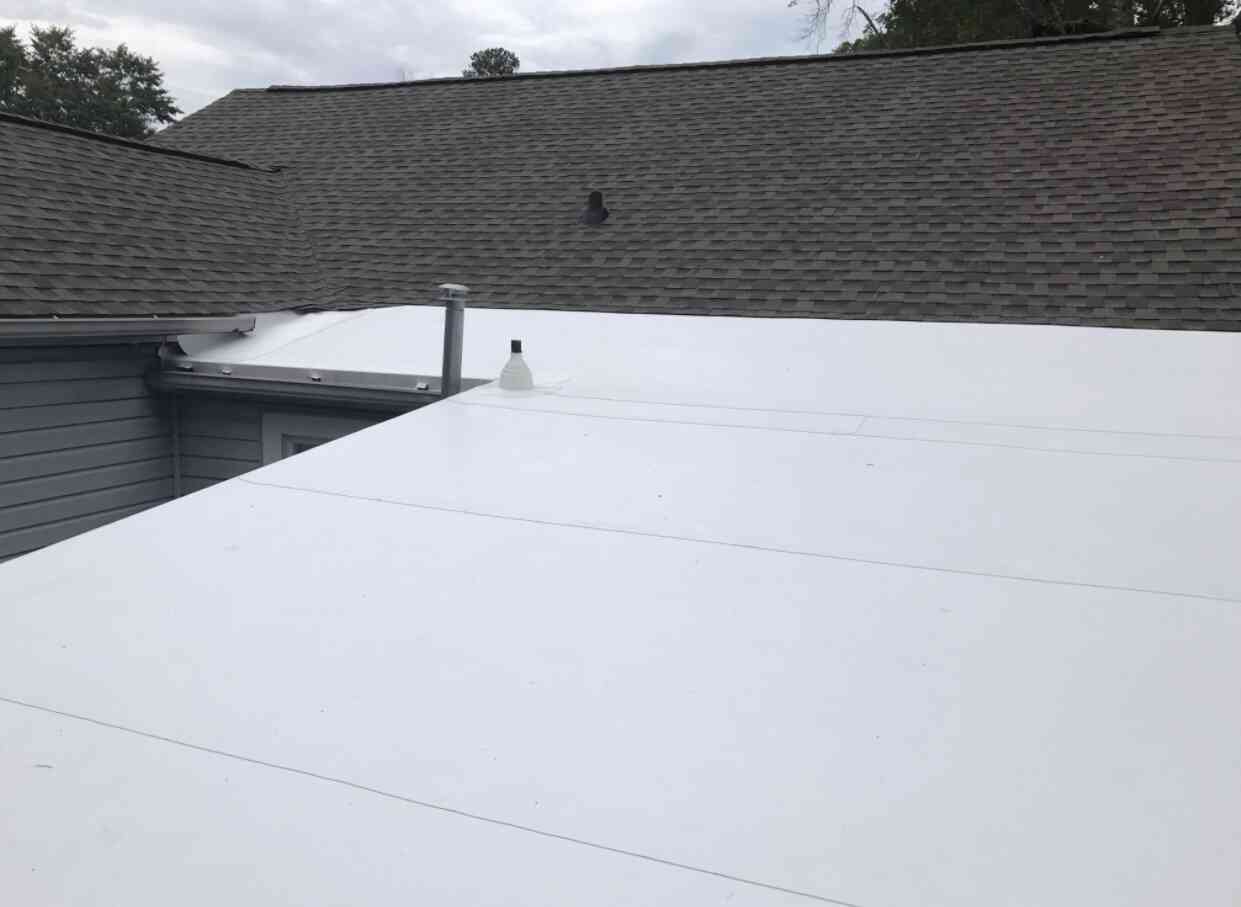
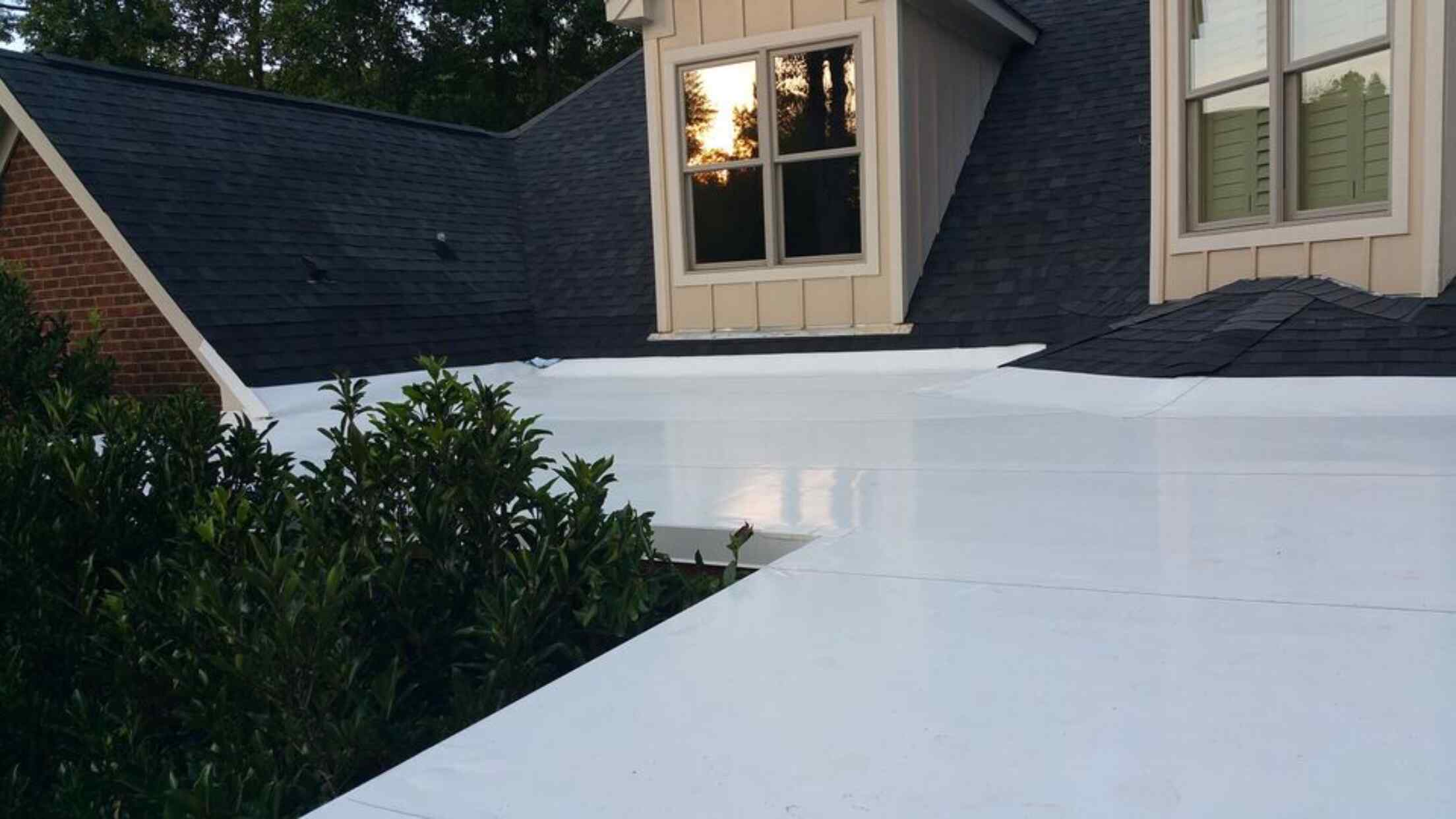
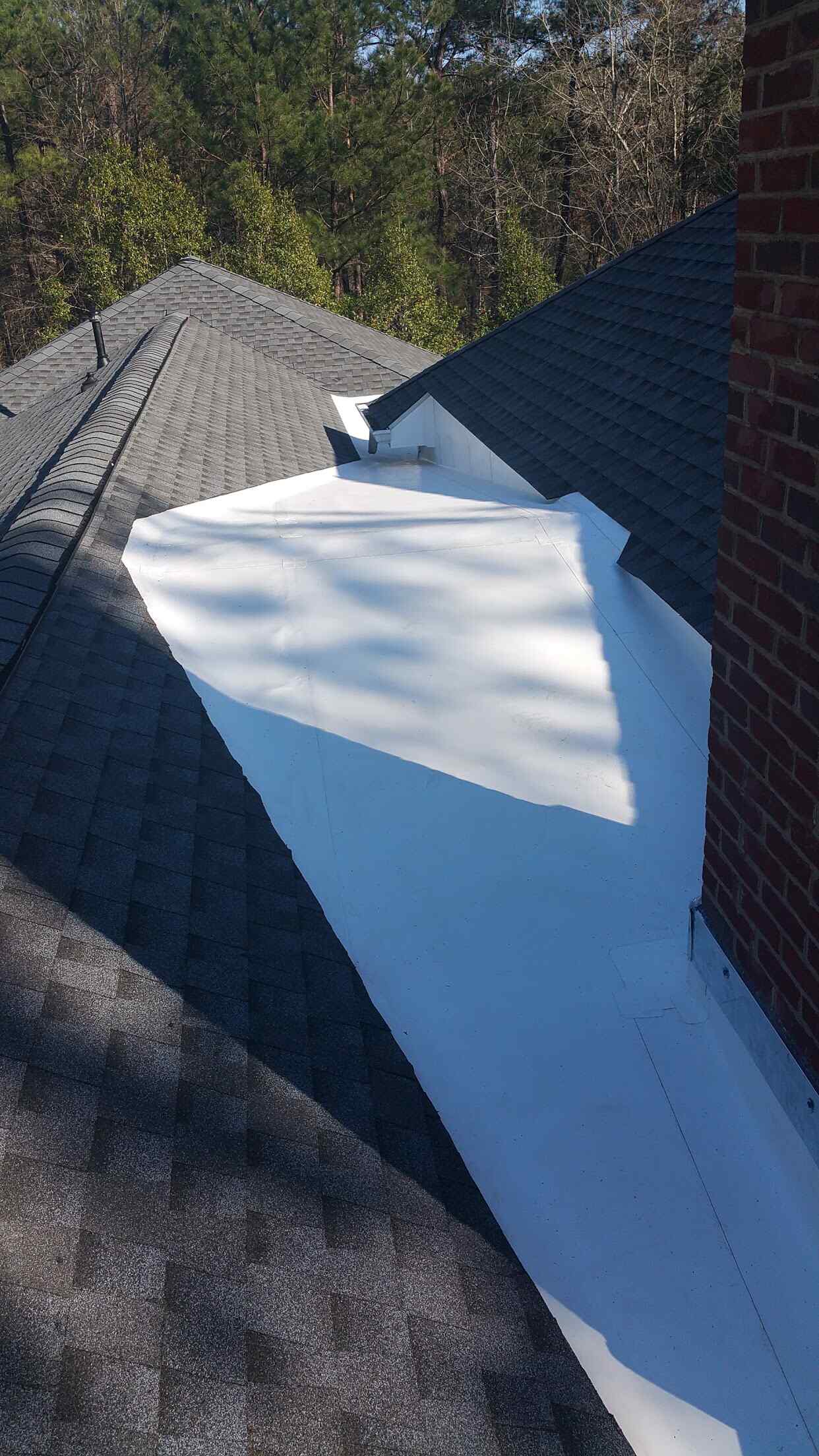
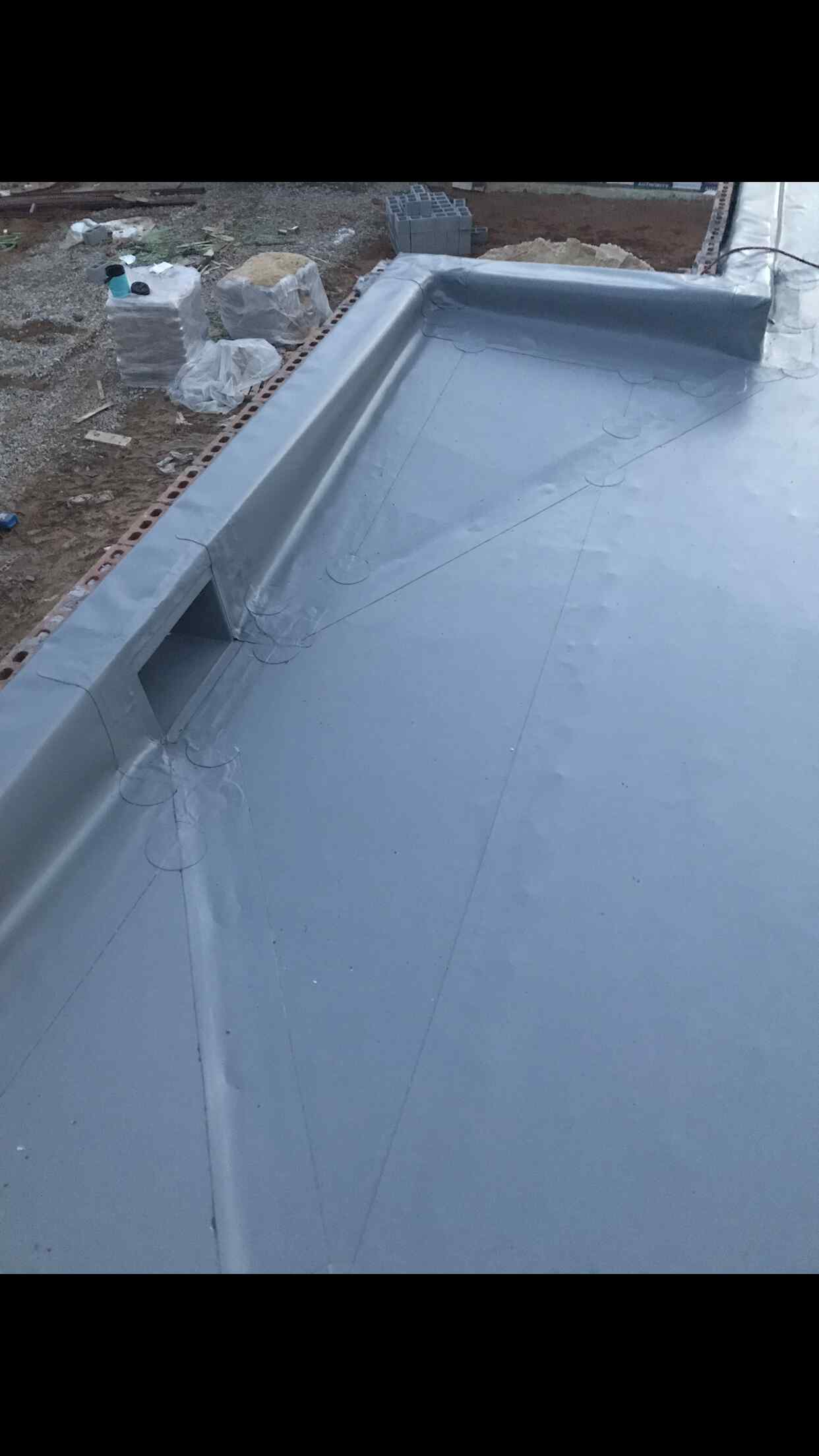
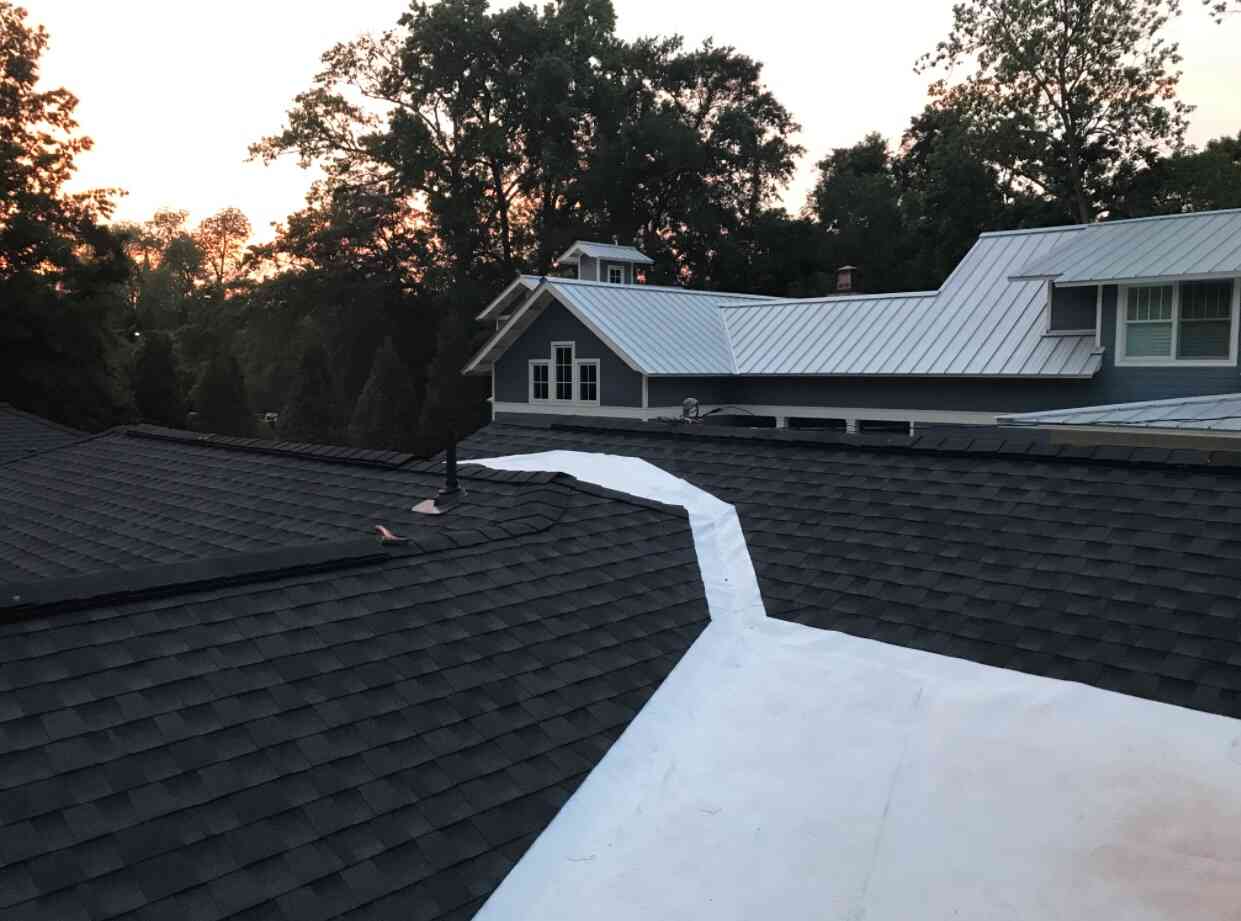
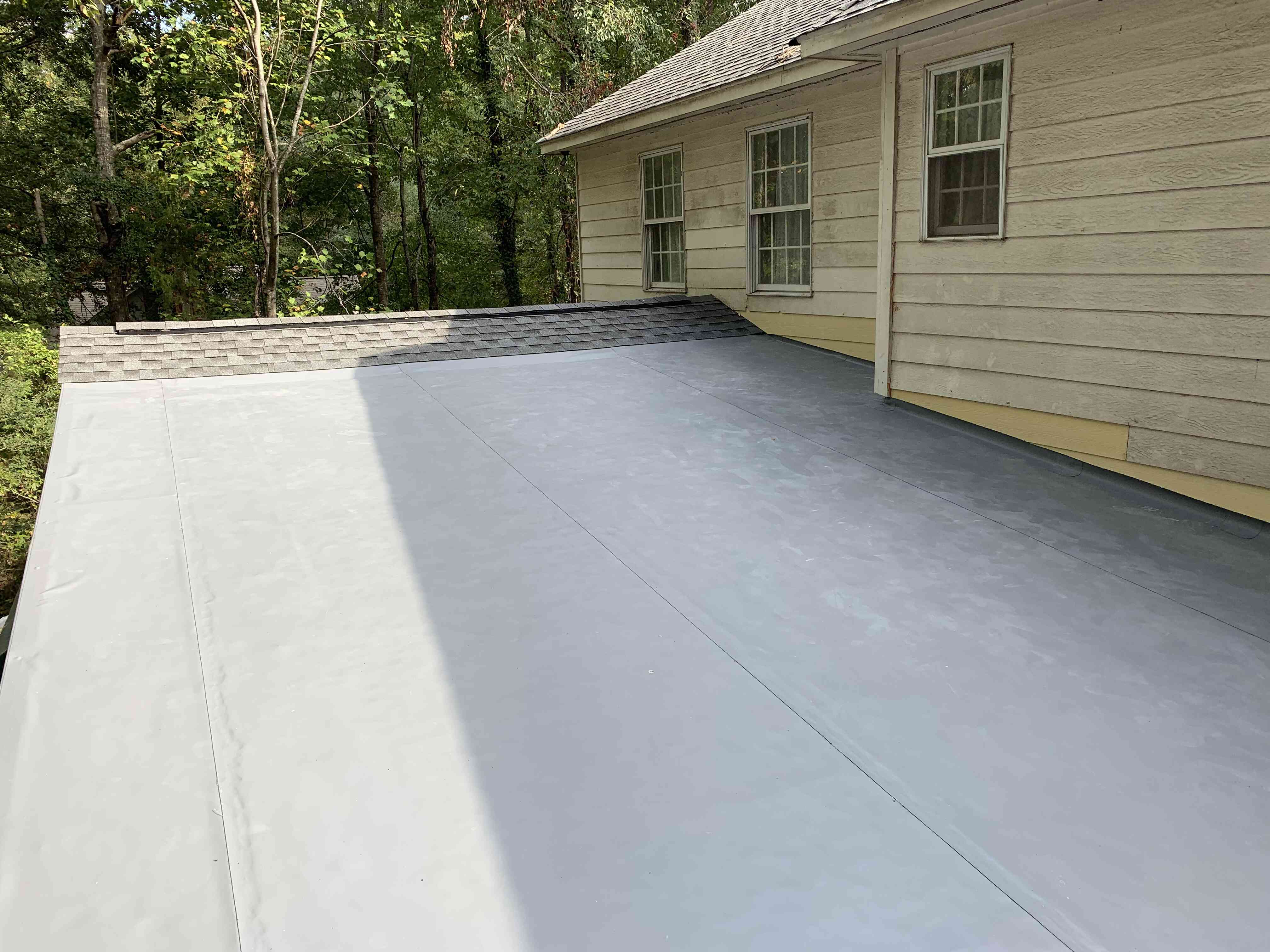
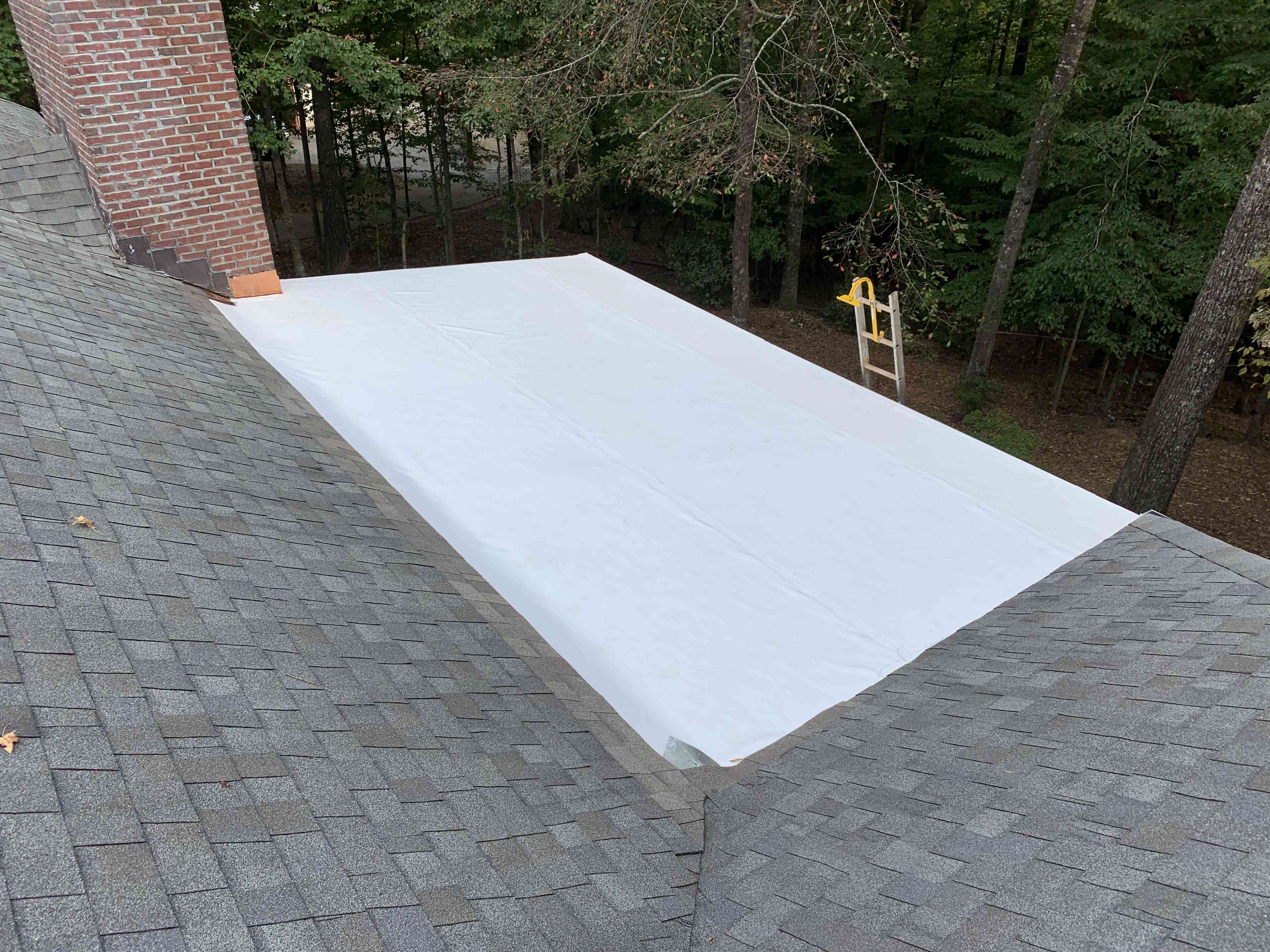
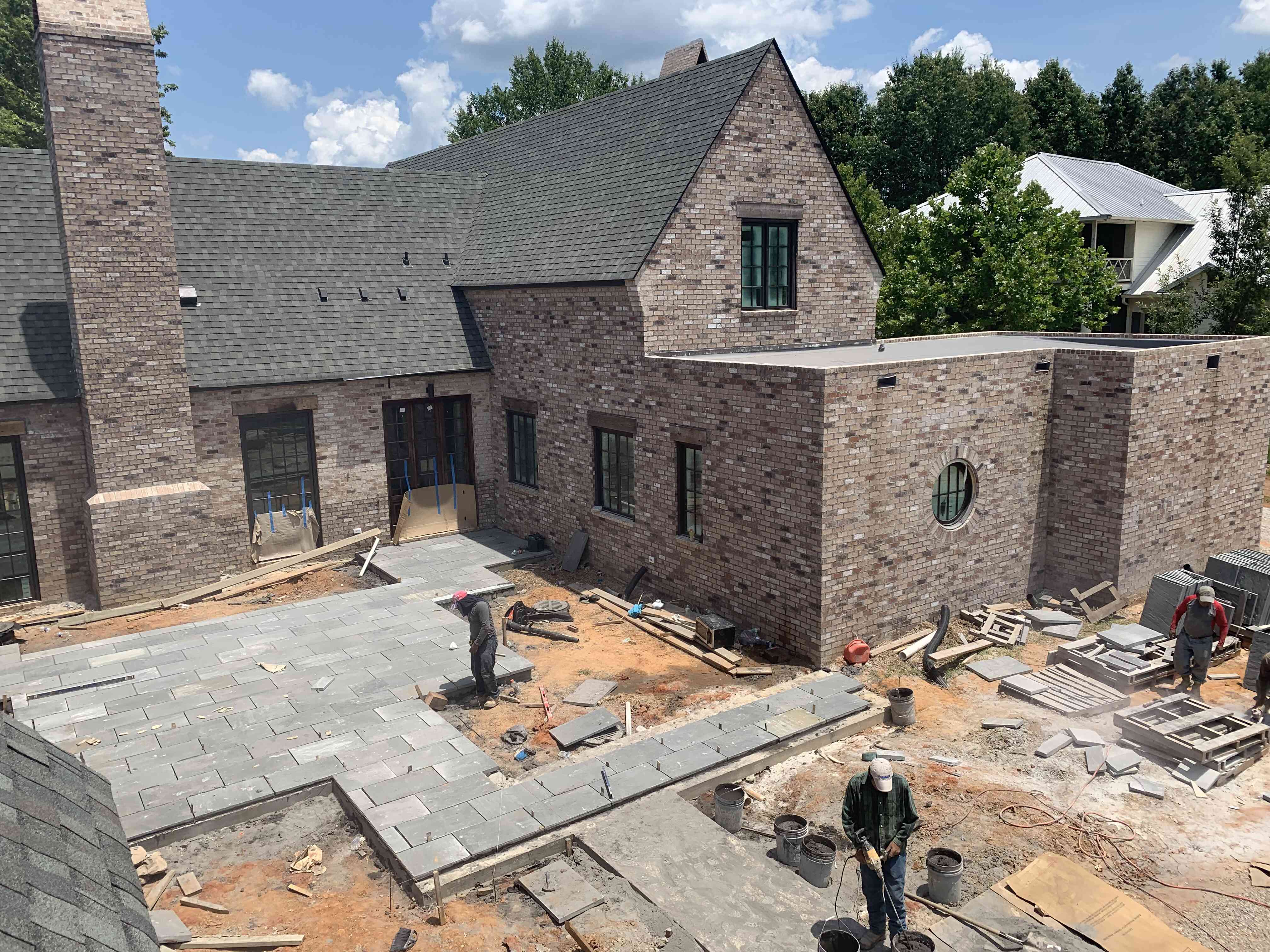
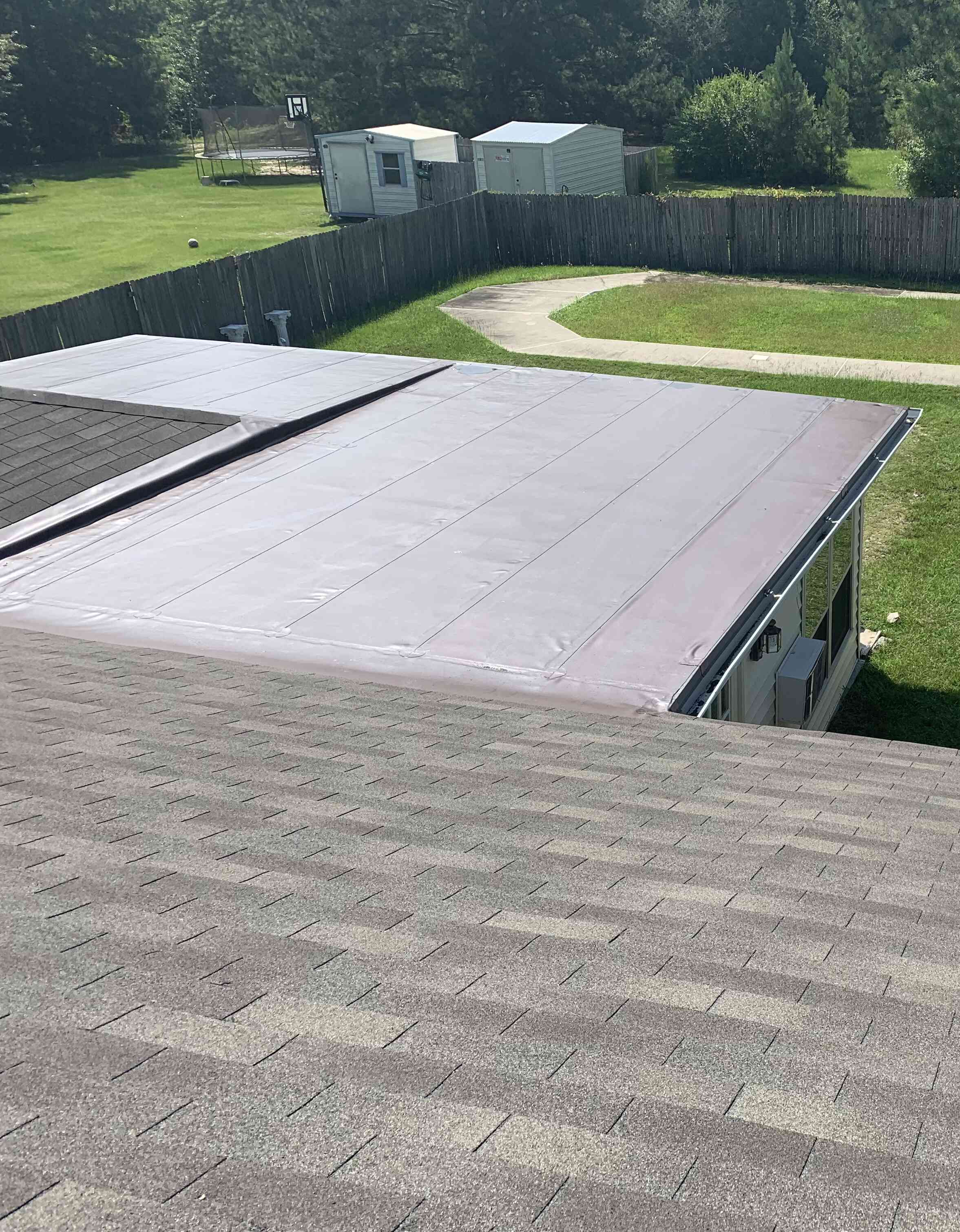
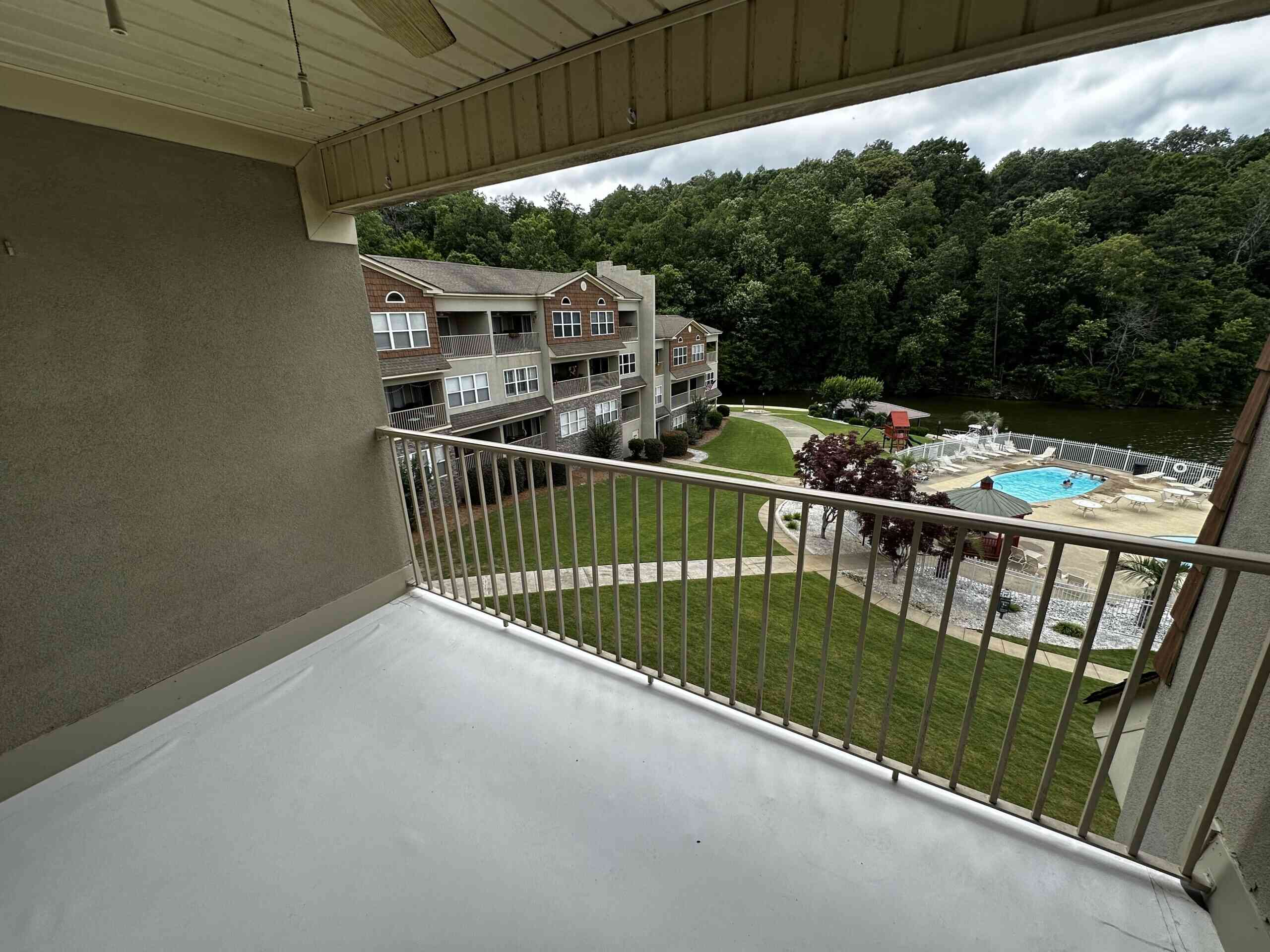
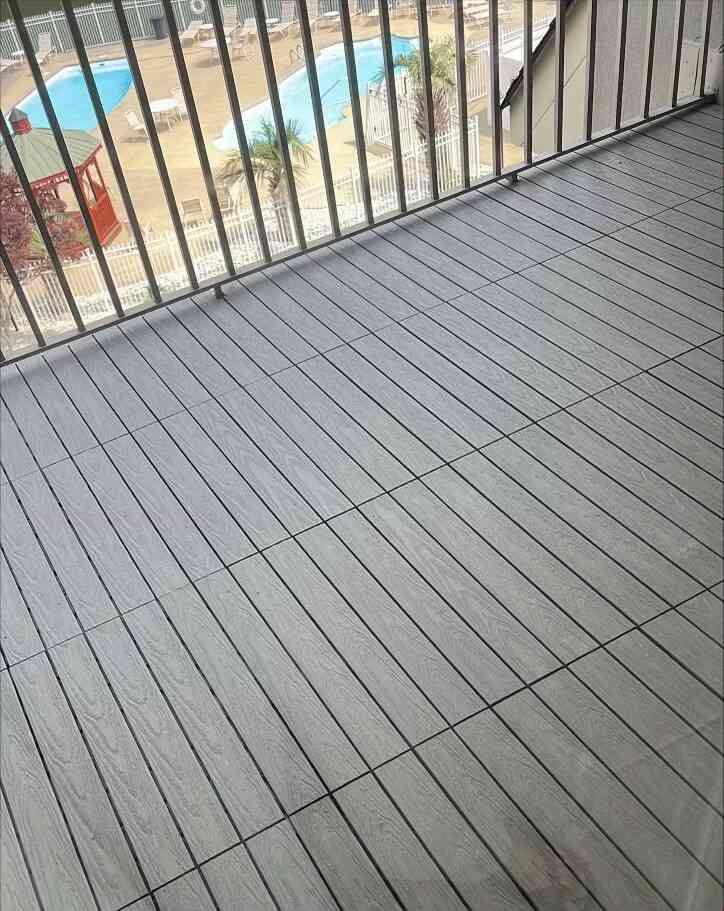
Flat Roofing in Auburn — Quick FAQ
What flat-roof materials do you install?
Primarily PVC and TPO single-ply membranes for homes and small commercial—fully adhered or mechanically fastened, with tapered insulation when needed.
How long do PVC/TPO flat roofs last in Alabama?
Typically 20–30 years with proper installation, drainage, and maintenance. Heat-welded seams + correct edge metal are key.
Can you repair ponding or chronic leaks?
Yes—we correct slope with tapered insulation, replace failing seams/flashings, and add proper scuppers/edge details.
Do you work on residential flat sections?
All the time—porches, add-ons, low-slope sections tying into shingles. We handle the transition flashing so both systems shed water correctly.